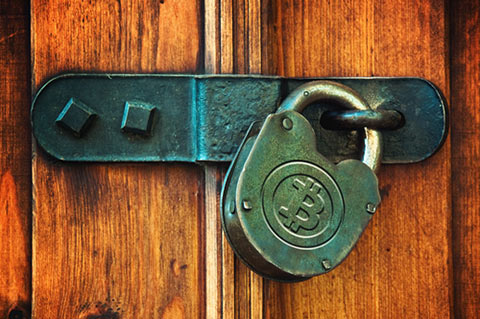In the aftermath of the grim Bitcoin news about the collapse of the Mt. Gox exchange, it's clear we're going to need a lot of answers about how much money could have gone missing without being noticed.

The chief executive officer of Japan-based Mt. Gox, Mark Karpeles, has admitted to the loss of a total of 850,000 bitcoins - 100,000 of its own and 750,000 belonging to customers. At current Bitcoin prices, the lost currency would be worth $480 million and represent about 7% of all bitcoins in existence.
Bitcoin prices have weathered the crisis remarkably well - they've recovered to above $600 as of today (Monday), almost back to where they were before Mt. Gox went dark on Feb. 24, a testament to the resilience of the digital currency.
But such a huge loss will need a better explanation than what we've already gotten from Karpeles to reassure a public already skeptical of Bitcoin.
So far Karpeles has blamed the Mt. Gox losses entirely on a "transaction malleability" flaw in the Bitcoin code that allowed hackers to make double-withdrawals from their accounts.
While the flaw is real, many in the Bitcoin community can't understand how the loss of such massive sums went completely unnoticed by Karpeles and the Mt. Gox team until just a few weeks ago.
It seems there must be much more to this story - and those details will have a lot more to do with human failings than issues with the Bitcoin code.
The full story of what happened at Mt. Gox will almost certainly vindicate Bitcoin as a technology.
But at the same time, this episode has shown that Bitcoin is susceptible to the same kinds of issues as other types of financial instruments and needs some degree of regulation to make it more trustworthy.
Looking at what we know so far, the Mt. Gox problems were at minimum the result of neglect, although some have suggested more sinister motives.
Bitcoin News: Mt. Gox Isn't Telling Us EverythingWhile we won't know exactly what happened until the investigations launched by the Japanese authorities are complete, it appears Mt. Gox is holding back on what it knows.
Many in the Bitcoin community doubt that hackers could possibly have stolen all of the 850,000 missing bitcoins, for several reasons.
First, such a huge outflow should have been detected. Even if the theft started in 2011 (when the transaction malleability flaw became known), the hackers would have needed to steal hundreds of bitcoins per day. And the shorter the time frame, the larger the amounts disappearing. Even cursory monitoring of the Mt. Gox would have detected this.
Second, institutions that deal in large amounts of bitcoin store most of them in "cold wallets" - that is, offline where they can't be accessed over the Internet. Bitcoins are transferred to a "hot wallet," which is connected to the Internet, only as needed. Mt. Gox supposedly had most of its Bitcoin in a series of cold wallets. How could the hackers have gotten to them?
Theories are running rampant on the Bitcoin subReddit and other Bitcoin enthusiast sites.
Some have parsed one of Karpeles' remarks about the Mt. Gox bitcoins being "temporarily unavailable" to mean that the majority of the lost bitcoins are still at Mt. Gox, but stored in wallets with missing or corrupted keys.
That would explain the series of problems at Mt. Gox before it shut down. If Karpeles was trying recover the keys, he needed to buy time until the problem was solved - but it wasn't.
Another theory holds that Karpeles "borrowed" the customer bitcoins at Mt. Gox (similar to what MF Global did with customer funds in 2011) and sold them in May 2013 at $100 to cover legal liabilities with CoinLab, which had sued Mt. Gox for $75 million. The plan would have been to buy back the coins over time to make customers whole, but then Bitcoin prices started to rise.
Karpeles released another statement today that noted that an internal investigation had "found that a large amount of bitcoins had disappeared" and that Mt. Gox believes "there is a high probability that these bitcoins were stolen" by hackers exploiting the transaction malleability bug.
Hopefully, the Japanese authorities will uncover the truth about what happened at Mt. Gox. Whether what happened bears any similarities to these theories or not, the lessons learned from the Mt. Gox affair will need to be studied.
Whatever mistakes were made by Karpeles and his team should provide a road map for what governments, businesses, and individuals need to do prevent such crises in the future.
In that sense, this unfortunate Bitcoin news could turn out to have a silver lining after all.
What happened to all the bitcoins that were at Mt. Gox? What do you think will happen to CEO mark Karpeles? Share your thoughts on Twitter @moneymorning or Facebook.
Whatever mistakes were made at Mt. Gox, nothing compares to what goes on at the Too Big to Fail Banks. Even getting caught red-handed doesn't seem to slow them down. Here's how the Big Banks are still screwing you...
Related Links:
- TechCrunch:
Mt. Gox Posts New Statement on Alleged Bitcoin Theft, Bankruptcy Filing - Fox Business:
Internet Chat Reveals Mt. Gox CEO Hasn't 'Given Up' - Let's talk Bitcoin:
Something's Not Right at 'Gox
The post Bitcoin News: Why We Need to Know What Really Happened at Mt. Gox appeared first on Money Morning - Only the News You Can Profit From.













